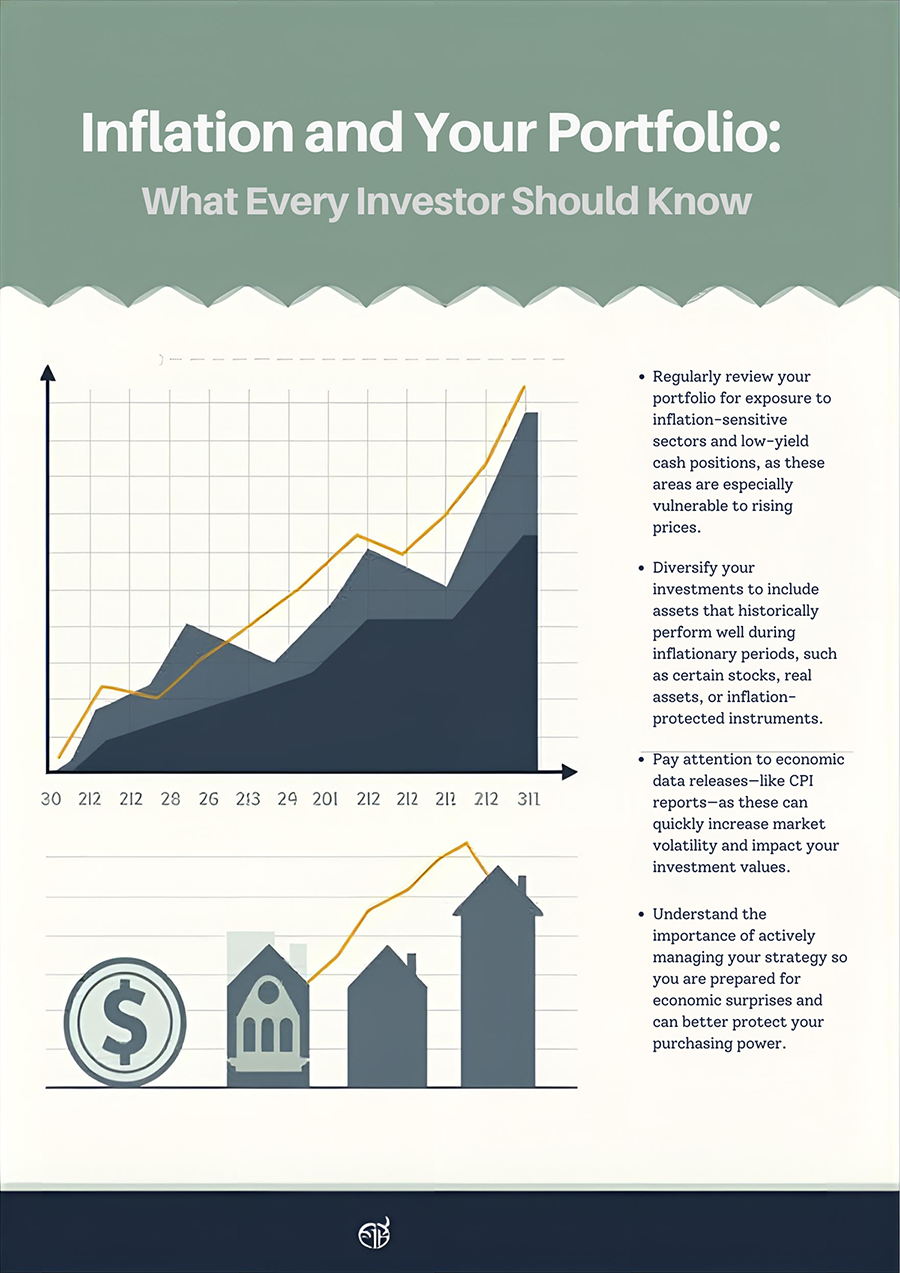
With markets growing more volatile, November’s economic reports—especially the Consumer Price Index (CPI)—have investors watching inflation more closely than ever. If you’re wondering how rising or falling prices might affect your stocks, bonds, or cash, now is the perfect time to give your portfolio a health check.
How Inflation Impacts Your Investments
When inflation heats up, every dollar buys less, which means your investment gains may not stretch as far. Here’s how different parts of your portfolio might react:
Stocks: Companies in sectors such as energy and consumer staples often perform better during inflation because they can pass on higher costs to consumers. On the other hand, tech and discretionary companies may struggle if their costs rise or consumers cut back.
Bonds: Fixed-income investments are likely to feel the pinch the most. When prices climb, the real (inflation-adjusted) returns from bonds shrink. Inflation-protected Treasuries (TIPS) offer some shelter, since their payouts rise with CPI, but market disruptions or delays in government data can cause short-term confusion and price swings.
Cash: Holding a large amount of cash or low-yield deposits during inflation can quietly erode your purchasing power. If inflation outpaces the interest on your cash, you’re effectively losing ground.
November’s CPI Report: Why It Matters
Recent government data releases have kept markets on edge. Any delay or disruption—such as the recent threat to October’s CPI—can make it harder to value inflation-linked assets, like TIPS, and can leave investors without a clear benchmark for returns and portfolio decisions.
What Should You Do? Stress-Test Your Portfolio
Check if you’re too concentrated in inflation-sensitive sectors or holding excess cash. Consider diversifying beyond just stocks and bonds—structured products or alternative assets could help if markets stay bumpy. Review your exposure to sectors most affected by inflation or interest rate fluctuations and consider adding assets that can help protect your real returns.
Bottom Line: Stay Ready for Surprises
Being proactive about inflation makes your portfolio more resilient. By reviewing your investments now, you can better manage risk, make smart use of inflation-protected options, and ensure you’re prepared for whatever the markets throw your way.
Disclosure
This material is provided for informational purposes only and does not constitute investment advice, an offer, or solicitation to buy or sell securities. Past performance is not indicative of future results. All investments are subject to risk, including risk of loss. Asset allocation and diversification do not ensure a profit or protect against loss in declining markets. Investors should consider their own objectives, risk tolerance, and consult with financial advisors before making any investment decisions. The accuracy and timeliness of information are not guaranteed and may be subject to change.
Sources
- https://www.boycewealth.com/thought-leadership/november-2025-outlook-inflation-pops-seasonal-tailwinds
- https://home.treasury.gov/news/press-releases/sb0301
- https://www.reuters.com/business/us-government-shutdown-may-prompt-first-ever-workaround-inflation-protected-2025-10-29/
- https://www.blackrock.com/corporate/insights/blackrock-investment-institute/publications/outlook
- https://www.investopedia.com/new-inflation-report-delivers-good-news-for-next-week-s-i-bond-rate-11836974
- https://treasurydirect.gov/auctions/announcements-data-results/tips-cpi-data/
- https://www.schwab.com/learn/story/fixed-income-outlook
- https://growthequityinterviewguide.com/investor-relations/investor-relations-best-practices/investor-relations-compliance
- https://www.citigroup.com/global/insights/keeping-current-with-us-fund-disclosures
- https://www.sec.gov/rules-regulations/staff-guidance/compliance-disclosure-interpretations












